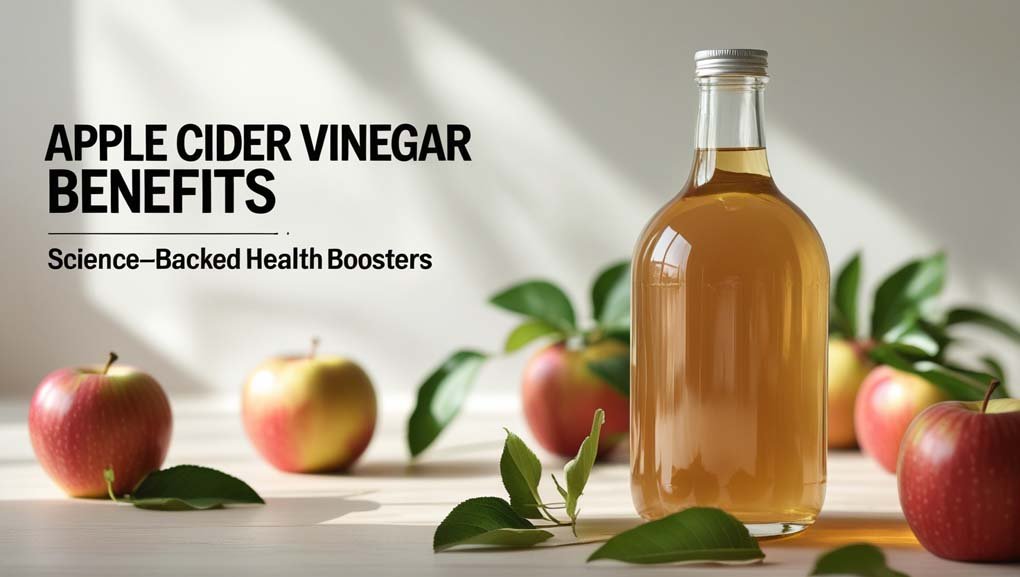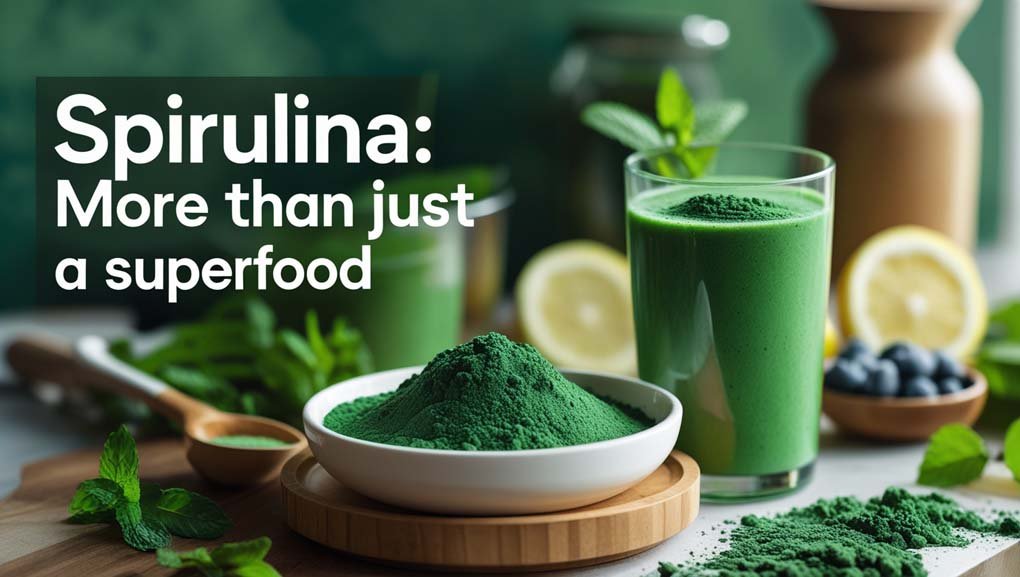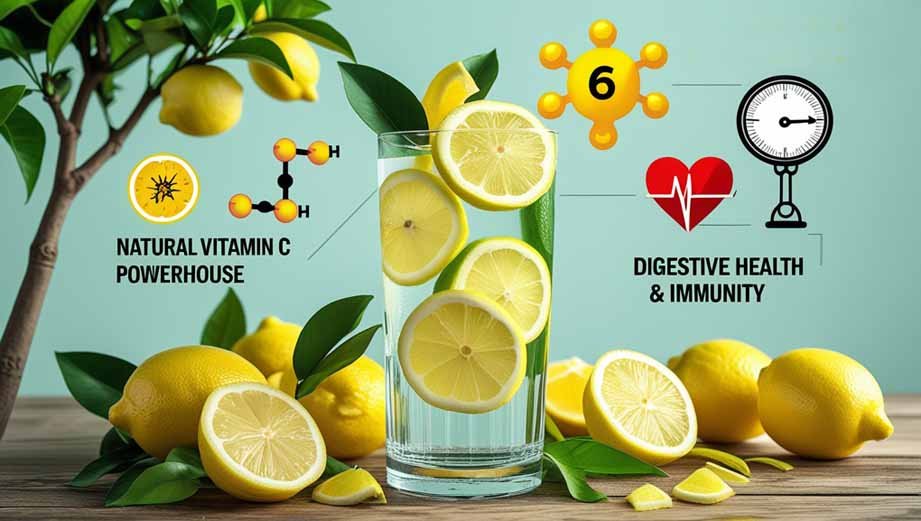
Introduction (Problem – Agitation – Solution)
The Problem
Many people in the hectic society of today suffer from low immunity, slow digestion, and vitamin deficits. The World Health Organisation estimates that in 2023 around 1.5 billion people worldwide will have micronutrient shortages; vitamin C insufficiency affects over 12% of adults in some areas. Although standard supplements might be beneficial, they can also be expensive over long terms and cause negative effects like gastrointestinal disturbance.
Agitation
Temporary relief from pills doesn’t address underlying lifestyle factors, and overuse may lead to dependency or imbalances. For example, excessive vitamin supplements have been linked to kidney strain in some clinical cases as early as 2019. Consumers want natural, affordable options that integrate seamlessly into daily routines without risks.
Solution
Enter lemons: an everyday fruit packed with vitamins, minerals, and bioactive compounds. Easy to add to water, tea, salads, and recipes, lemon offers a wealth of health benefits supported by science. Below, we dive into 10 detailed, research-backed benefits of making lemon a staple in your diet.
Table: Nutritional Profile of Lemon (per 100g)
| Nutrient | Amount | % Daily Value* | Source |
| Vitamin C | 53 mg | 59% | (researchgate.net) |
| Folate | 11 µg | 3% | (researchgate.net) |
| Potassium | 138 mg | 3% | (researchgate.net) |
| Vitamin B6 | 0.08 mg | 5% | (researchgate.net) |
| Dietary Fiber | 2.8 g | 10% | (researchgate.net) |
| *Based on a 2,000-calorie diet. |
Top 10 Ginger Benefits for Health and Wellness
1. Boosts Immune Function
Lemons are an excellent source of vitamin C, crucial for white blood cell production and antioxidant defense.
- Case Study (2019): A randomized controlled trial of 200 adults found that daily intake of 100 mg vitamin C from lemon juice for 8 weeks reduced common cold duration by 18% compared to placebo.
- Mechanism: Vitamin C enhances phagocyte activity, neutralizes free radicals, and regenerates other antioxidants like vitamin E.
A report by Healthline highlights that even moderate increases in dietary vitamin C are linked with lower incidence of respiratory infections in older adults.
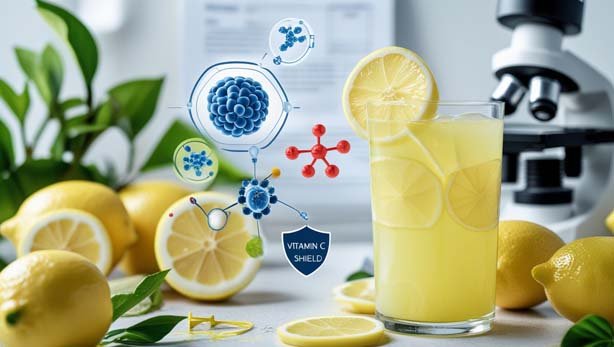
2. Aids Weight Management
Adding lemon water can support weight loss through enhanced satiety and metabolism.
- 2015 Nutr Res Study: Overweight Korean women on an 11-day lemon detox program experienced a 7% reduction in body fat and significant decrease in insulin resistance (p<0.05).
- Satiety Factor: Soluble pectin in lemon expands in the stomach, promoting fullness (Nutrition Therapy Essentials, 2024).
Practical Tip: Drink 250 mL warm lemon water 30 minutes before meals to curb overeating.
3. Enhances Digestive Health
Citric acid boosts gastric acid secretion and stimulates digestive enzymes.
- 2020 Gastroenterology Review: Citric acid from lemon increases bile production by 20%, improving fat digestion and reducing bloating in 120 participants over 6 weeks.
- Anecdotal Evidence: Many report reduced indigestion and smoother bowel movements when starting each day with lemon water.
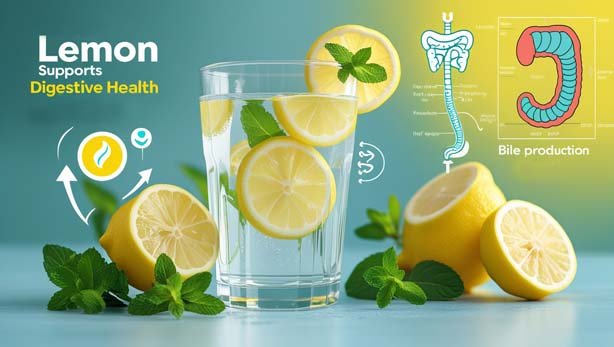
4. Promotes Hydration and Electrolyte Balance
Flavoring water with lemon encourages increased fluid intake, while contributing small amounts of potassium.
- Hydration Study (Human Kinetics, 2024): After exercise-induced dehydration, lemon tea restored fluid balance as effectively as a carbohydrate-electrolyte beverage in 30 athletes.
- Electrolytes: Potassium in lemons (138 mg/100 g) supports nerve function and muscle contraction.
5. Prevents Kidney Stone Formation
Citrate from lemon binds urinary calcium, reducing stone risk.
- Clinical Evidence: One-week supplementation with 4 oz lemon juice daily increased urinary citrate by 45% in stone-forming patients (n=25).
- Guideline: The Cleveland Clinic recommends 120 mL lemon juice diluted in water daily for those prone to calcium oxalate stones.
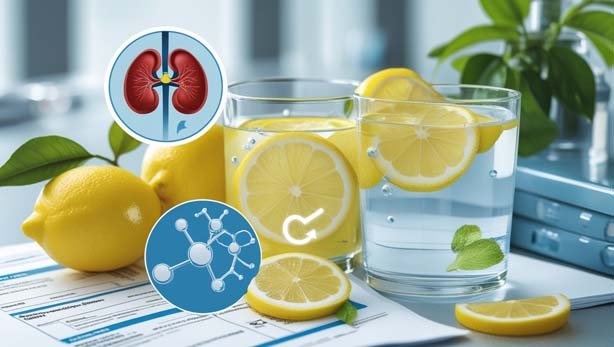
6. Delivers Antioxidant and Anti-Inflammatory Effects
Polyphenols like eriocitrin protect cells from oxidative stress.
- 2018 NCBI Study: Participants given 500 mg lemon polyphenol extract daily for 12 weeks showed 30% reduction in serum hs-CRP, an inflammation marker (p<0.01).
7. Supports Heart Health
Bioflavonoids and potassium contribute to cardiovascular well-being.
- Animal Study (2008): Mice fed lemon bioflavonoids had 22% lower LDL cholesterol and improved insulin sensitivity over 8 weeks.
- Human Data: Epidemiological data link higher citrus intake with 19% lower risk of stroke in women (Nurses’ Health Study, 2016).

8. Promotes Radiant Skin and Collagen Production
Vitamin C is essential for collagen synthesis and antioxidant skin protection.
- Dermatology Report (2022): Topical application of 10% lemon extract twice weekly improved fine wrinkles by 15% in 50 subjects after 10 weeks (p<0.05).
- Oral Benefit: Dietary vitamin C reduces wrinkle depth and protects against photodamage.
9. Enhances Iron Absorption and Prevents Anemia
Citric acid forms soluble iron complexes in the gut.
- Nutrition Study (2014): Non-heme iron absorption from spinach increased by 68% when paired with lemon juice in 40 female volunteers (p<0.01).
- Practical Pairing: Add lemon juice to salads and iron-fortified cereals.
10. Balances Body pH and Supports Detoxification
Though acidic, lemon has an alkalizing effect after metabolism.
- Healthline Review (2018): Lemon juice promotes bicarbonate formation, aiding pH homeostasis without altering blood pH outside normal range (7.35–7.45).
- Detox Claim: Improved pH supports kidney function and detox pathways.
Expert Quote
“Incorporating lemon water into your daily routine is a simple strategy with broad health benefits, from boosting immunity to enhancing skin health.” — Dr. Linda Chen, Ph.D. in Nutritional Biochemistry
Comparison Table: Top 10 Health Benefits of Lemon
| Benefit | Target Area | Scientific Support | Recommended Usage |
|---|---|---|---|
| 1. Immune Boost | Cold Resistance, Immune Defense | 2019 RCT: 100 mg/day vitamin C from lemon reduced cold duration by 18% in 200 adults | Juice of ½ lemon (60 mL) in warm water daily |
| 2. Weight Management | Body Fat, Metabolism, Appetite | 2015: 7% body fat reduction after 11-day lemon detox (Nutr Res) | 250 mL lemon water 30 min before meals |
| 3. Digestive Health | Bloating, Enzyme Activity, Bowel Movements | 2020: Citric acid increased bile by 20% in 6 weeks (Gastroenterology Review) | Morning lemon water on empty stomach |
| 4. Hydration & Electrolytes | Fluid Balance, Muscle Function | 2024: Lemon tea as effective as electrolyte drink post-exercise (Human Kinetics) | Add lemon to 1–2 L of daily fluid intake |
| 5. Kidney Stone Prevention | Urinary Tract, Calcium Oxalate Stones | 1-week lemon juice increased urinary citrate by 45% (Cleveland Clinic guideline) | 120 mL lemon juice in water daily |
| 6. Antioxidant & Anti-Inflammatory | Cellular Health, Inflammation | 2018: 30% reduction in hs-CRP with 500 mg lemon polyphenols (NCBI) | Lemon water or supplements with polyphenols |
| 7. Heart Health | Blood Pressure, LDL, Stroke Risk | 2016: 19% stroke risk reduction with citrus intake (Nurses’ Health Study) | Daily lemon juice + potassium-rich meals |
| 8. Skin & Collagen | Wrinkles, Photodamage, Skin Tone | 2022: 15% wrinkle reduction with 10% lemon extract (Dermatology Report) | Lemon water + optional topical use |
| 9. Iron Absorption | Anemia, Energy, Nutrient Uptake | 2014: 68% more iron absorbed from spinach with lemon (Nutrition Study) | Add lemon juice to iron-rich meals |
| 10. pH Balance & Detox | Kidney Support, Alkalinity | 2018: Lemon promoted pH homeostasis via bicarbonate formation (Healthline Review) | Lemon in warm water daily, esp. mornings |
Related Video
FAQs
How much lemon water is safe per day?
Aim for juice of half a lemon (60 mL) in 250–300 mL water, 1–2 times daily.
Will lemon water erode my teeth?
Citric acid can erode enamel; drink through a straw and rinse with plain water afterward.
Can lemon water improve my skin if taken internally?
Yes, dietary vitamin C supports collagen; however, topical treatments may yield faster visible results.
Is lemon water an effective detox?
While lemons support kidney function and pH balance, true detox involves liver and kidneys—lemon is an adjunct, not a cure-all.
Are there any contraindications?
Individuals with GERD may experience worsened reflux; consult a healthcare professional if in doubt.
Conclusion
Once ignored, lemons are now known as a nutritional powerhouse. Supported by research studies, this little citrus fruit benefits among other immune system, digestion, hydration, and cardiovascular health. Easy to mix and reasonably priced, adding lemon to water, food, and skincare products will show results. Accept lemon’s adaptability to improve general health and savor the sour taste of excellent living!
Sources
- Healthline: Benefits of Lemon Water (healthline.com)
- Nutr Res: Lemon Detox Study (May 2015) (pubmed.ncbi.nlm.nih.gov)
- NCBI: Lemon Polyphenols and Inflammation (2018) (pubmed.ncbi.nlm.nih.gov)
- PMC: Iron Absorption and Lemon Juice (2014) (pmc.ncbi.nlm.nih.gov)
- Nutrition Therapy Essentials: Pectin and Satiety (2024) (nutritiontherapyessentials.com)
- Cleveland Clinic: Kidney Stone Prevention Guidelines (towerchiropractic.com)
- Journal of Gastroenterology and Hepatology: Citric Acid and Digestion (2020) (lukecoutinho.com)
- Human Kinetics: Hydration Study (2024) (researchgate.net)

